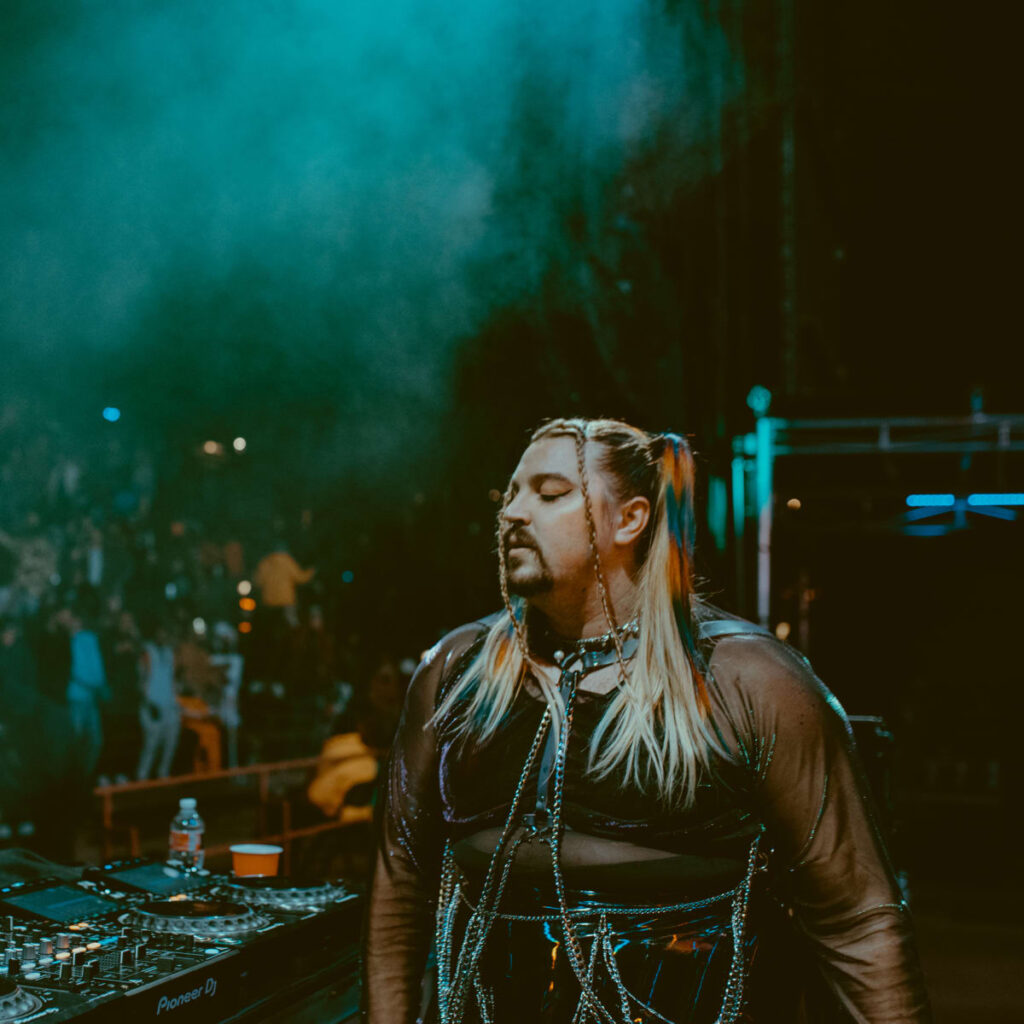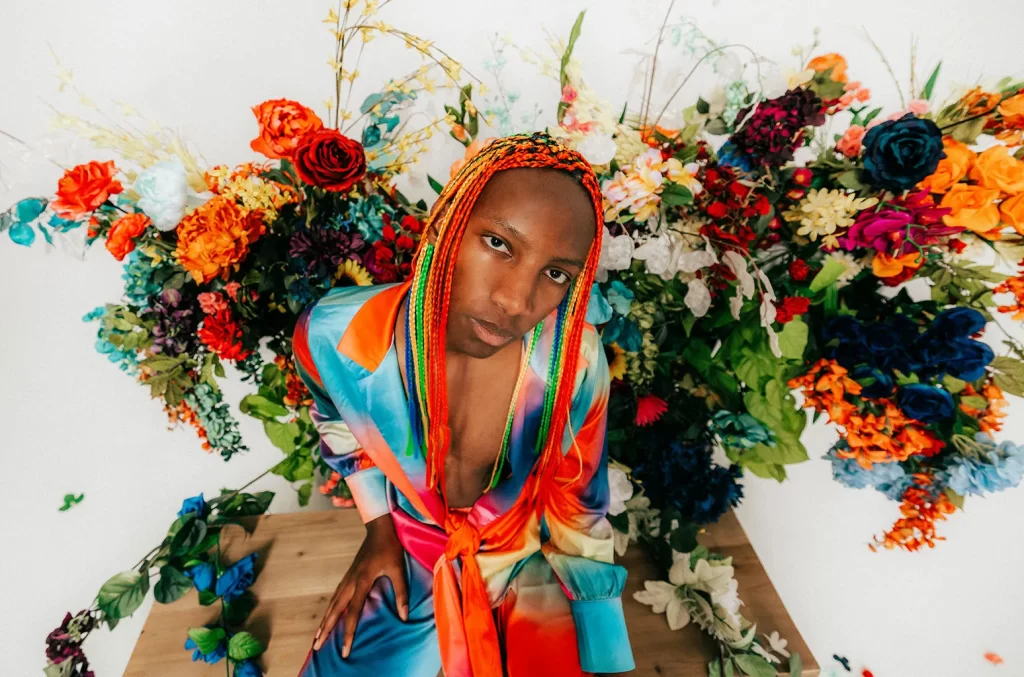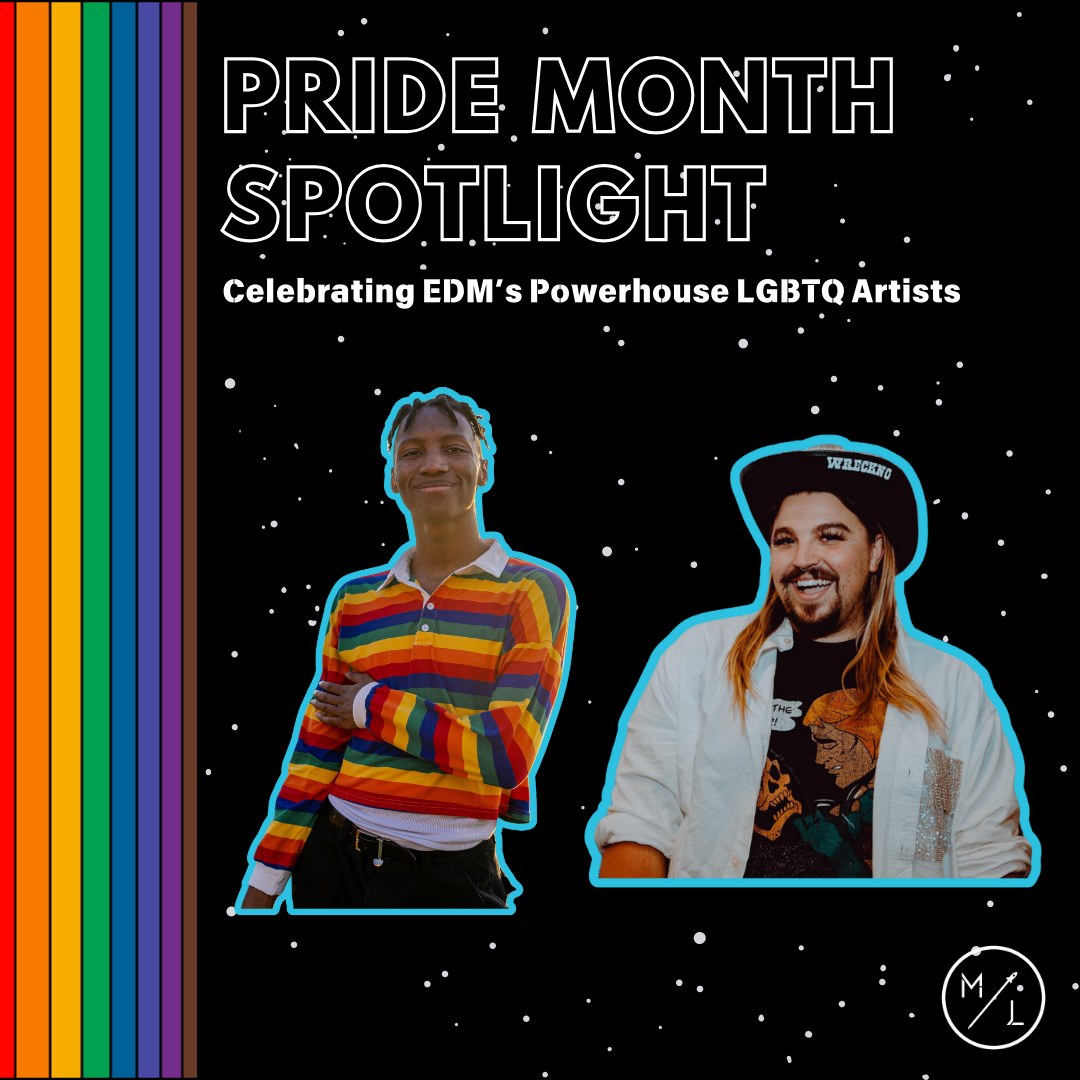Growing up in Michigan near the home of Electric Forest, Wreckno began experimenting with electronic music at the age of 15. They started DJing as a hobby in 2015, and officially began focusing on music as a career about four years later. After collaborating with GRiZ on the hit track “Medusa” in 2020, Wreckno’s career took off, cementing them as one of the top electronic artists in the scene with their unique blend of bass music and hip-hop.
As an openly queer artist, Wreckno uses their platform to promote LGBTQ+ representation in the electronic music scene and challenge stereotypes in the hip-hop industry. Wreckno’s music often includes empowering messages and themes that resonate with LGBTQ+ audiences, with lyrics addressing self-acceptance, empowerment, and pride. They provide a safe and inclusive space for the LGBTQ+ community to express themselves and connect with Wreckno’s journey as a queer artist. Wreckno continues to advocate for the community and their rights, using their influence to make a difference in the world.
Wreckno will be playing at several upcoming festivals in the second half of 2024, including Secret Dreams Music & Arts Festival in Thornville, Ohio on July 18; Elements Festival in Long Pond, Pennsylvania on August 9; Wicked Woods Music Festival in Fairmont Hot Springs, Canada on August 30; Cascade Equinox Festival in Redmond, Oregon on September 20; and Same Same But Different Festival in Rancho Las Perris, California on September 27.

Born in Southern California, Moore Kismet developed an interest in music at a young age, gaining recognition as a teenager. Their music is known for its genre-blending nature, combining elements of dubstep, future bass, trap, and other electronic sub-genres. Kismet was included in Billboard’s 21 under 21 in 2020 and 2021, becoming the youngest artist to play at both EDC Las Vegas and Lollapalooza. The name “Moore Kismet” means “more than fate,” representing the multifaceted artist who also has interests in graphic design and visual arts.
As an openly non-binary and pansexual artist, Moore Kismet has been a vocal advocate for LGBTQ+ rights and representation in the music industry. They use their platform to promote inclusivity and acceptance, discussing the challenges they face as a young, queer artist, including mental health and industry pressures. Their music and visual art often explore themes of identity, self-acceptance, and empowerment. Additionally, Kismet frequently collaborates with other LGBTQ+ artists, fostering a sense of community within the industry.














